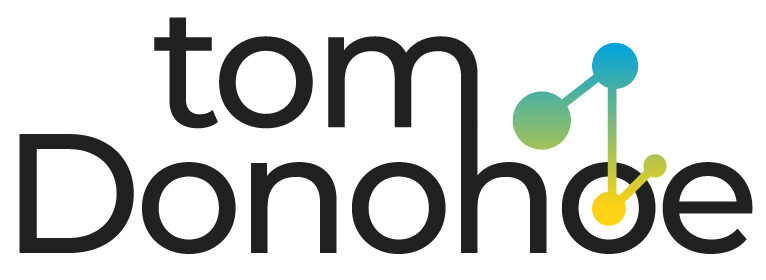ESTRATEGIA DE MARKETING DIGITAL

In today’s digital age, having a solid digital marketing strategy is essential for businesses of all sizes to thrive and remain competitive in the online landscape. A well-crafted digital marketing plan enables companies to reach their target audience effectively, build brand awareness, and drive conversions. In this article, we will delve into the intricacies of estrategia de marketing digital and explore key components that contribute to its success.
Introduction to Digital Marketing Strategy
Digital marketing encompasses a range of online tactics aimed at promoting products or services through various digital channels. From social media and email marketing to search engine optimization (SEO) and paid advertising, the digital sphere offers numerous avenues for businesses to connect with their audience.
A digital marketing strategy serves as a roadmap for achieving specific marketing objectives within the digital realm. It outlines the tactics, tools, and platforms that will be utilized to engage with potential customers and drive desired outcomes.
Understanding Your Audience
One of the fundamental pillars of a successful digital marketing strategy is understanding your target audience. Conducting thorough market research and creating detailed buyer personas can provide valuable insights into consumer behavior, preferences, and pain points. By understanding the needs of your audience, you can tailor your marketing efforts to resonate with them effectively.
Setting Clear Goals
Setting clear and measurable goals is essential for guiding your digital marketing strategy. Utilizing the SMART criteria—specific, measurable, achievable, relevant, and time-bound—can help ensure that your objectives are well-defined and attainable. Whether it’s increasing website traffic, generating leads, or boosting sales, establishing clear goals provides direction and focus for your digital marketing initiatives.
Choosing the Right Digital Channels
With a plethora of digital channels available, choosing the right ones for your business is crucial. Social media platforms such as Facebook, Instagram, and LinkedIn offer opportunities for engaging with audiences and building brand presence. Email marketing remains an effective tool for nurturing leads and fostering customer relationships. Additionally, content marketing through blogs, videos, and infographics can help drive organic traffic and establish thought leadership in your industry.
Creating Compelling Content
Content lies at the heart of any successful digital marketing strategy. Quality content that is informative, relevant, and engaging can attract and retain the attention of your target audience. Whether it’s blog posts, social media updates, or video tutorials, creating compelling content that resonates with your audience can drive traffic, enhance brand credibility, and ultimately lead to conversions.
Search Engine Optimization (SEO)
SEO plays a pivotal role in improving the visibility of your website in search engine results pages (SERPs). By optimizing your website’s content, meta tags, and backlink profile, you can enhance its chances of ranking higher for relevant keywords. On-page optimization involves optimizing individual web pages to improve their search engine rankings, while off-page optimization focuses on building authority and credibility through external links and mentions.
Paid Advertising
In addition to organic methods, paid advertising offers a targeted approach to reaching potential customers online. Platforms such as Google Ads and Facebook Ads allow businesses to create highly customized campaigns tailored to their specific audience segments. By allocating budget strategically and monitoring campaign performance, companies can maximize their return on investment (ROI) and achieve desired outcomes.
Analyzing and Adjusting Strategies
Regularly monitoring and analyzing key performance indicators (KPIs) is essential for evaluating the effectiveness of your digital marketing strategy. Utilizing analytics tools such as Google Analytics and social media insights can provide valuable data insights into user behavior, traffic sources, and conversion metrics. By identifying areas of improvement and adjusting strategies accordingly, businesses can optimize their digital marketing efforts for better results.
Mobile Optimization
With the increasing prevalence of mobile devices, optimizing your digital assets for mobile users is paramount. Ensuring that your website is mobile-friendly and features responsive design elements can enhance user experience and reduce bounce rates. Mobile optimization extends beyond websites to include email campaigns, social media posts, and digital advertisements, ensuring seamless interaction across all devices.
Building Customer Relationships
Effective digital marketing strategies go beyond acquisition to focus on building long-term relationships with customers. Engaging with audiences through personalized communication, social media interactions, and email newsletters can foster brand loyalty and advocacy. Implementing customer feedback mechanisms and addressing inquiries promptly demonstrates a commitment to customer satisfaction and retention.
Integration with Traditional Marketing
While digital marketing offers unparalleled reach and targeting capabilities, integrating digital tactics with traditional marketing channels can amplify results. Cross-promotional campaigns that leverage both online and offline mediums can enhance brand visibility and drive omnichannel engagement. By synchronizing messaging and branding across various touchpoints, businesses can create a cohesive and memorable brand experience for their audience.
Case Studies and Examples
Examining real-world examples and case studies can provide valuable insights into successful digital marketing campaigns. Whether it’s leveraging user-generated content on social media or implementing gamification techniques to drive engagement, learning from others’ experiences can inspire innovative approaches and strategies. By studying both successes and failures, businesses can refine their digital marketing efforts and adapt to changing market dynamics.
Staying Updated with Trends
The digital landscape is constantly evolving, with new technologies and trends emerging at a rapid pace. Staying abreast of industry updates, consumer behaviors, and technological advancements is essential for maintaining a competitive edge. Attending industry conferences, participating in online forums, and subscribing to industry publications can help marketers stay informed and adapt their strategies accordingly.
Measuring Success
Measuring the success of your digital marketing efforts requires tracking and analyzing relevant metrics and KPIs. From website traffic and conversion rates to social media engagement and email open rates, evaluating performance against predefined goals provides valuable insights into the effectiveness of your strategies. By identifying areas of improvement and iterating on tactics, businesses can continuously optimize their digital marketing initiatives for maximum impact.
Conclusion
In conclusion, a well-executed digital marketing strategy is essential for businesses seeking to thrive in today’s competitive landscape. By understanding their audience, setting clear goals, and leveraging the right digital channels and tactics, companies can effectively engage with customers, drive conversions, and achieve their marketing objectives. By staying agile, adaptable, and data-driven, companies can navigate the ever-evolving digital landscape and emerge successful in their endeavors.





